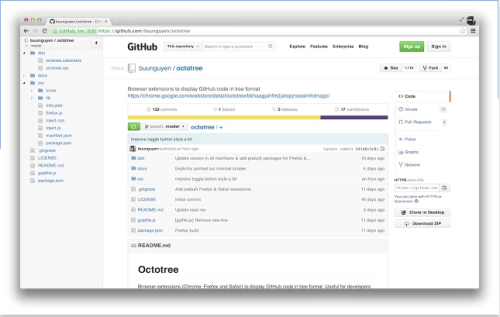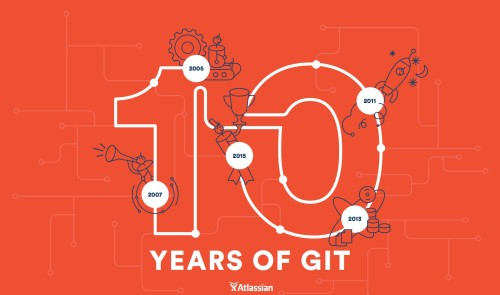OctroTree – Google Chrome extension for browsing GitHub code repositories. I promise you, this is one of those things that you wouldn’t believe you lived without before. Fast, convenient, with support for private repositories (via API access token), GitHub Enterprise, and keyboard shortcuts. Absolutely essential for anyone who is on GitHub!
Tag: GitHub
GitHub markdown syntax highlighting
Somehow, I missed this and haven’t used it until yesterday – GitHub markdown syntax highlighting:
Code blocks can be taken a step further by adding syntax highlighting. In your fenced block, add an optional language identifier and we’ll run it through syntax highlighting. For example, to syntax highlight Ruby code:
```ruby require 'redcarpet' markdown = Redcarpet.new("Hello World!") puts markdown.to_html ```We use Linguist to perform language detection and syntax highlighting. You can find out which keywords are valid by perusing the languages YAML file.
Gitter – chat for GitHub
Gitter – chat for GitHub
Get unlimited public rooms and one-to-one chats, free forever. Private team plans start from $5 per user per month. No credit card required.
GitHub announcing git large file storage
An exciting announcement comes from GitHub yet again – Large File System for git. The large files problem has been affecting quite a few teams that I’ve been a part of. It’s nice to see both an open source solution to the problem and a commercially supported service for the busy folk.
10 Years of Git: An Interview with Git Creator Linus Torvalds
Linux.com reminds us that git is celebrating its 10th birthday this year. An interview with git creator Linus Torvalds sheds some light on to how and why it happened, and how long it took.
You can actually see how it all took shape in the git source code repository, except for the very first day or so. It took about a day to get to be “self-hosting” so that I could start committing things into git using git itself, so the first day or so is hidden, but everything else is there. The work was clearly mostly during the day, but there’s a few midnight entries and a couple of 2 a.m. ones. The most interesting part is how quickly it took shape ; the very first commit in the git tree is not a lot of code, but it already did the basics – enough to commit itself. The trick wasn’t really so much the coding but coming up with how it organizes the data.
So I’d like to stress that while it really came together in just about ten days or so (at which point I did my first *kernel* commit using git), it wasn’t like it was some kind of mad dash of coding. The actual amount of that early code is actually fairly small, it all depended on getting the basic ideas right.
Very impressive!
And, of course: HAPPY BIRTHDAY GIT! The world is a much better place with you.


